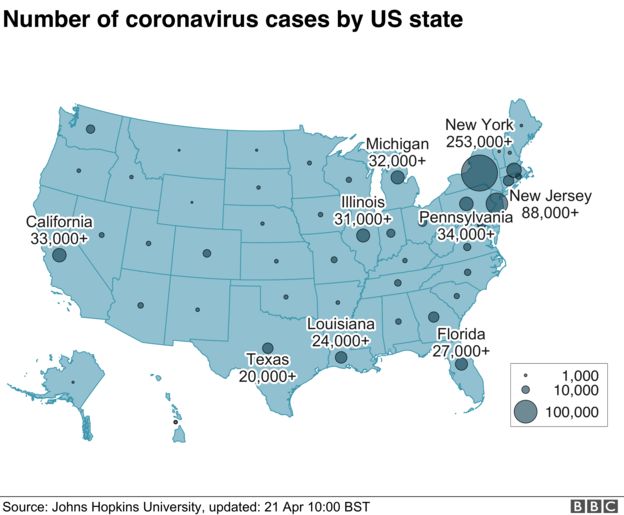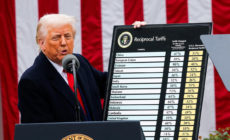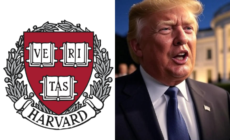Immigration to US to be suspended amid pandemic – Trump
- Posted on
- Comment

President Donald Trump has said he will sign an executive order to temporarily suspend all immigration to the US because of the coronavirus.
On Twitter, he cited “the attack from the invisible enemy”, as he calls the virus, and the need to protect the jobs of Americans, but did not give details.
It was not clear what programmes might be affected and whether the president would be able to carry out the order.
Critics say the government is using the pandemic to crack down on immigration.
Immigration has traditionally been a strong campaigning theme for Mr Trump, but has taken a back seat during the pandemic and in the lead-up to the November election.

In light of the attack from the Invisible Enemy, as well as the need to protect the jobs of our GREAT American Citizens, I will be signing an Executive Order to temporarily suspend immigration into the United States!— Donald J. Trump (@realDonaldTrump) April 21, 2020
End of Twitter post by @realDonaldTrump
Mr Trump’s announcement late on Monday came as the White House argued that the worst of the pandemic was over and the country could begin reopening. The restrictions on people’s movement, implemented by many states to curb the spread of the virus, have paralysed parts of the economy.
Over the past four weeks, more than 20 million Americans have registered for unemployment benefits. That amounts to roughly as many jobs as employers had added over the previous decade.
The US has more than 787,000 confirmed cases of Covid-19 and more than 42,000 deaths, according to a tally by Johns Hopkins University, which is tracking the pandemic globally.

How can the proposals be implemented?
It was not immediately clear who could be affected by Mr Trump’s announcement or when such a move could come into force, and the White House has not commented.
According to the New York Times, citing several people familiar with the plan, a formal order temporarily barring the provision of new green cards and work visas could be one way of implementing the measure; the administration would no longer approve any applications from foreigners to live and work in the US for an undetermined period of time.
Last month, the US suspended almost all visa processing, including for immigrants, because of the pandemic.
The US has already agreed with both Canada and Mexico to extend border restrictions on non-essential travel until at least mid-May.
Travel has also been sharply restricted from hard-hit European countries and China, though people with temporary work visas, students and business travellers are exempted.
On Monday, the US said it would continue to expel migrants it encounters along the border with Mexico for at least another month.
In recent weeks, emergency powers have been used to expel thousands of undocumented migrants on the US southern border. The public health measure lets officials override immigration laws, expediting removal processes.
Last year, just over one million people were granted lawful permanent resident status in the US, according to the Department of Homeland Security. The top countries of origin were Mexico, China, India, the Dominican Republic, the Philippines and Cuba.
More than half of those, though, were cases of “adjusted status from within the US” – meaning they were already there – and only 459,000 arrived from abroad. The latter group would be the ones presumably affected by an immigration ban.
When it comes to refugees, there were 30,000 people admitted into the US in 2019, most of them from Congo, Myanmar, Ukraine, Eritrea, Afghanistan and Syria.
-BBC










 (Selorm) |
(Selorm) |  (Nana Kwesi)
(Nana Kwesi)